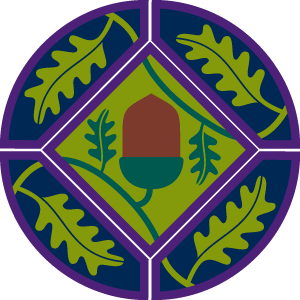Advancement and recognition in the Boy Scouts of America is a tradition dating from the inception of the Scouting movement. A fundamental purpose of advancement is the self-confidence a young man or woman acquires from his participation in Scouting. Advancement is one of the methods used in the "Aims of Scouting"– character development, citizenship training and personal fitness.

The Boys' Brigade (BB) is an international interdenominational Christian youth organisation, conceived by Sir William Alexander Smith to combine drill and fun activities with Christian values. Following its inception in Glasgow in 1883 the BB quickly spread across the United Kingdom, becoming a worldwide organisation by the early 1890s. As of 2018, there were 750,000 Boys' Brigade members in 60 countries.

The Scout Association is the largest Scouting organisation in the United Kingdom and is the World Organization of the Scout Movement's recognised member for the United Kingdom. Following the origin of Scouting in 1907, the association was formed in 1910 and incorporated in 1912 by a royal charter under its previous name of The Boy Scouts Association.

Venturing is one of the core programs of the Boy Scouts of America, serving young men and women. Members must be at least 14 years old, or 13 years old and have completed eighth grade, through age 21.

A Queen's Scout is a Scout who has attained the Queen's Scout Award. The Queen's Scout Award is the highest youth award achievable in the Scouting movement in the Commonwealth realms, including the United Kingdom, Canada, Australia, and New Zealand, where Scouts operate under the patronage of Queen Elizabeth II. Whether the award recipient is a Queen's or King's Scout depends on who is the current Monarch of the Commonwealth realms.

The Duke of Edinburgh's Award is a youth awards programme founded in the United Kingdom in 1956 by Prince Philip, Duke of Edinburgh, that has since expanded to 144 nations. The awards recognise adolescents and young adults for completing a series of self-improvement exercises modelled on Kurt Hahn's solutions to his "Six Declines of Modern Youth".

Explorer Scouts, frequently shortened to Explorers, is the fourth section of The Scout Association in the United Kingdom for 14- to 18-year-olds. The section was introduced in 2001 and formally launched in February 2002, alongside Scout Network, to replace the former Venture Scout section for fifteen-and-a-half to twenty-year-olds.
Venturer or Venture Scouts are programs in some Scouting organisations for young people of various age ranges in the 14–20 age range. A participant in the program is called a Venturer.

Gaisce – The President's Award is an award in Ireland, earned by young people between the ages of 15 and 25 for participating in several activities for a certain period. There are three awards: bronze, silver and gold.
The Hong Kong Award for Young People, formerly known as The Duke of Edinburgh's Award, is one of the active members of the International Award Association. The Hong Kong Award was incepted in 1961.

Cub Scouts or Macaoimh is the name given to youth members Scouting Ireland and previously Scouting Ireland (CSI), of the Cub Scout age group. The terms Macaoimh and Cub are often co-existent though Macaoimh represents a different tradition. Both boys and girls participate in the Cub Scout programme though some Scout Groups are boys only. Its membership is the largest of the four Scouting Ireland Sections. The Cub Scout programme is part of the worldwide Scouting movement and aims to develop the youth member using the SPICE program - Social, Physical, Intellectual, Character, Emotional and Spiritual.

The Chief Scout Award is the highest youth programme award in each of the Programme Sections in Scouting Ireland. It is designed to tie-in with the Gaisce Award/Duke of Edinburgh's Award, and the Chief Scout Award for Scouts, Venture Scouts, and Rover Scouts are awarded jointly with the Bronze, Silver and Gold awards respectively. Requirements for the award are a number of Adventure Skills, Special Interest Badges, an Expedition, and camp with an inter-cultural aspect. The progress of the award is led by the participant, with the help of the Scouter.

Cub Scouts, often shortened to Cubs, are a section of Scouting operated by The Scout Association with a core age of eight to ten and a half years of age. This section follows on from the Beaver Scouts and precedes the Scout section.
The Queen's Guide award is the highest attainable award for members of Girlguiding.

Young Leaders are Explorer Scouts who choose to provide leadership in Beaver Scout Colonies, Cub Scout Packs or Scout Troops alongside adult volunteers as a part of the leadership team. Training of Young Leaders is achieved through eleven lettered modules covering the necessary skills to play an active part of the leadership team, with members challenged to apply what they have learned through four 'missions' in their sections.
Within the framework of the training programme Air Training Corps cadets have the opportunity of taking part in many activities. On most Squadrons the only compulsory activities in the ATC year are attendance at various church parades, usually ATC Sunday and Remembrance Sunday. Many wings also insist that attending Wing Parade is compulsory.

St John Ambulance Cadets is a youth organisation of St John Ambulance founded in England in 1922 for people aged between 10 and 17 to train them in first aid, social actions, wellbeing, communication and other essential skills. As of December 2019, there were 8,071 Cadets in England. Cadets take part in a variety of activities that consist of providing first aid at community events, learning leadership and training skills.

The Duke of Edinburgh's International Award is a self-development program available to young people from age 14 but must be completed before their 25th birthday. As of April 2021, over 500,000 young people from Canada, and 10 million youth in 143 other countries have received the award.

The Grand Prior's Award, also called the Grand Prior Award, named for Grand Prior of the Venerable Order of Saint John, is the second highest award that a cadet in the St. John Ambulance Youth Programme can achieve after the Sovereign's Award. The Grand Prior's Award recognises a self-motivated and capable young person's ongoing commitment, compassion, and support. It is recognised and awarded internationally by various branches of the program. The Grand Prior's Award is recognised in many countries, including England and the Islands, Wales, Canada, Malaysia, New Zealand, and Australia.
The personal progression system for youth members of Scouting Ireland has been designed and refactored since the merger of earlier organisations.
















